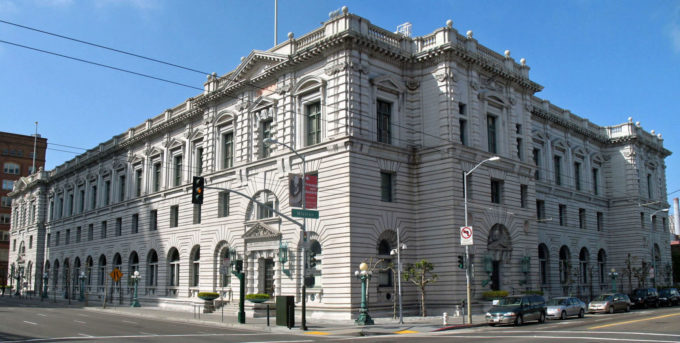
Alleged Neo-Nazis Lose First Amendment Challenge to Anti-Riot Act in Ninth Circuit
By Adam Toobin – Edited by Justin Cho
United States v. Rundo, No. 19-50189 (9th Cir. 2021)
The First Amendment does not bar the prosecution of three alleged neo-Nazis for violations of the federal Anti-Riot Act, according to a recent ruling from the Ninth Circuit. The three-judge panel reversed the district court’s ruling, which had struck down the 1968 statute as unconstitutionally overbroad. The indictments themselves emerged out of two violent riots in California, including a “Make America Great Again” rally. Though the court did strike down certain provisions of the law as unconstitutional, the decision left the bulk of the law intact and paves the way for the prosecutions to proceed.
The prosecution targets the actions of four individual members of the “Rise Above Movement,” an organization that represents itself “as a combat-ready, militant group of new nationalist white supremacy and identity movement.” The four had been charged with “conspiring and agreeing to riot” as well as “aiding and abetting” others in using interstate facilities with intent to riot. The indictment claims that the individuals engaged in a spree of racist violence targeting counter protesters at two right-wing rallies in 2017. One member has already pled guilty.
Appellate review of the indictment concerned the same question about the Anti-Riot Act posed in a related case to the Fourth Circuit last year. The Ninth Circuit panel ended up following the Fourth in striking down certain provisions as unconstitutional but upholding the law’s core. While the district court had determined that the Anti-Riot Act was facially overbroad, the reviewing panel disagreed. Rather, it found the unconstitutional provisions severable and remanded to the lower court for further proceedings.
The court’s decision hinged on the Supreme Court’s seminal Brandenburg v. Ohio decision. In Brandenburg, the Court determined that a speech by a KKK leader could not be constitutionally punished, because he was not inciting imminent unlawful activity. The hate group leader in Brandenburg had promised “revengeance” against black people and Jews and advocated the forced expulsion of both groups from the country. The Court, however, viewed these declarations as insufficiently concrete and immediate to be constitutionally proscribable.
In assessing whether the Anti-Riot Act complied with Brandenburg, the Ninth Circuit opinion dealt primarily with whether the law could survive Brandenburg’s imminence requirement. The court held that prosecutions for inciting, participating, or carrying on a riot were all constitutionally permissible. At the same time, the court rejected portions of the law that criminalize urging, encouraging, promoting, or organizing acts of violence tied to a riot.
Ultimately, the Ninth Circuit’s decision to uphold the “incitement” prong of the Anti-Riot Act is of little surprise in light of Brandenburg, but it represents a victory for those who see incitement prosecutions as one potential response to organized acts of racist violence. The facts in the underlying complaint mirror a variety of incidents that gained national attention in recent years.
The first incident occurred at a “Make American Great Again” rally in Huntington Beach, California. The complaint details how members of the “Rise Above Movement” attended the rally holding signs saying, “DEFEND AMERICA, and “Da Goyim Know.” The latter slogan is described as a white supremacist expression that refers to the “supposed knowledge of a Jewish conspiracy to control world affairs.” Videos of the rally allegedly show the four defendants punching journalists and beating up counter protesters.
The second incident involved similar activity at Martin Luther King Jr. Civic Center in Berkeley. The weekend prior to the rally, several members of the group attended a private “training” that involved practice with shields, sticks, and formations. On the day of the rally, the RAM members allegedly beat protesters, including someone “who was crouching in a defensive position.” Social media accounts associated with the defendants were then used to distribute videos and graphics celebrating the various acts of violence.
Though the law may be settled in the Ninth Circuit (barring an unlikely rehearing en banc), the Anti-Riot Act itself is likely to garner continued attention in the coming months. High-profile prosecutions under the statute out of the January 6th riot at the US Capitol may generate further litigation concerning First Amendment limits on prosecutions for incitement. The lesson of the recent Ninth Circuit decision is clear though: with two Circuits backing the constitutionality of most of the Anti-Riot Act, opportunities for alleged rioters to escape prosecution on free speech grounds are narrowing.